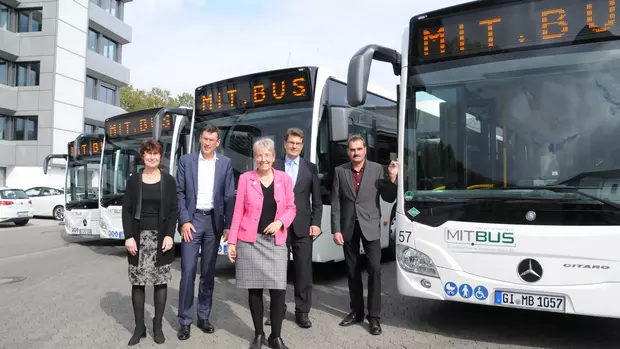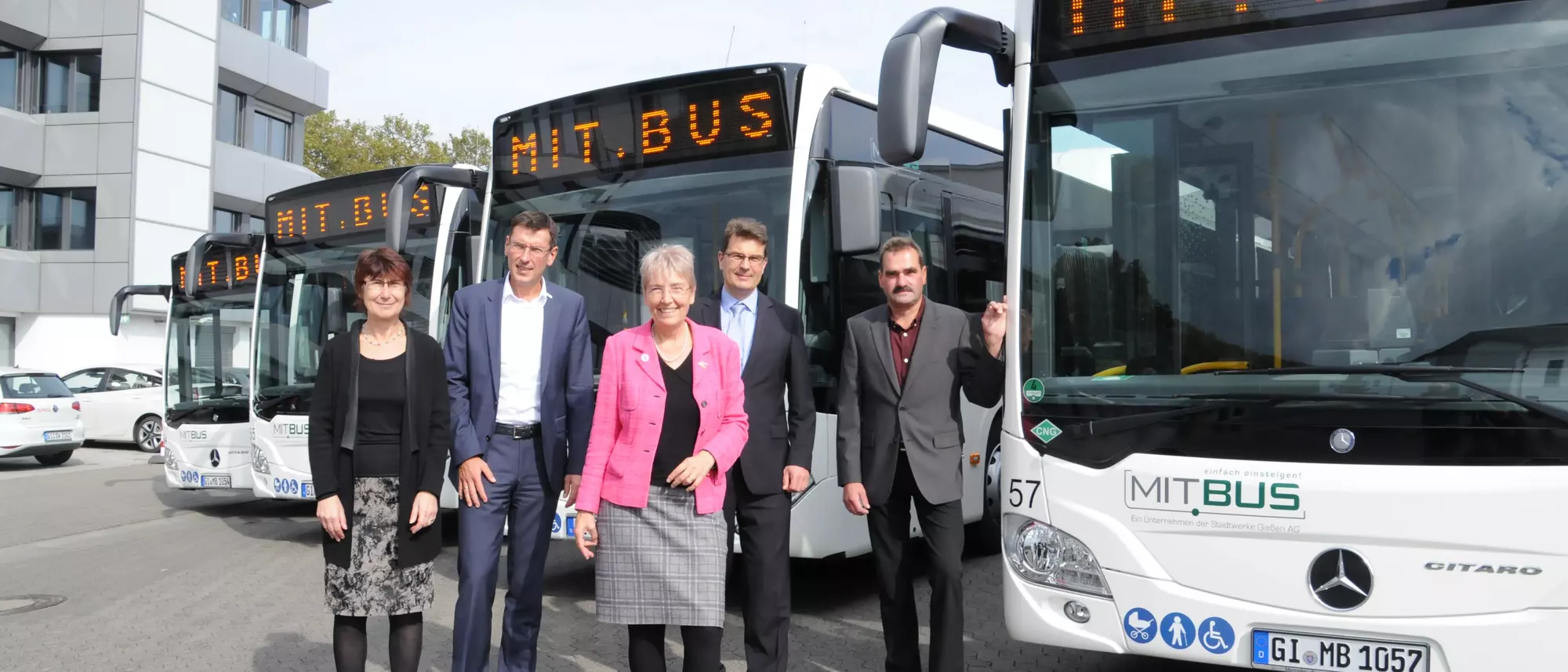
MIT.BUS GmbH, a subsidiary of Stadtwerke Gießen, is adding four new articulated buses with natural gas engines to its fleet. Not just a plus in terms of climate protection: thanks to large open spaces in the centre section and swivel-sliding doors, they offer more room for passengers with limited mobility and mothers with pushchairs.
Giessen. Many German cities are facing a ban on diesel vehicles in the future - at least if the German Environmental Aid organisation (DUH) has its way. This would also affect many local public transport vehicles. Not in Giessen, however, where the subsidiary of Stadtwerke Giessen, MIT.BUS GmbH, has been gradually converting its fleet to climate-friendly natural gas technology for many years. Recently, four more articulated buses with natural gas drive were added, bringing the total number to 44, which means that MIT.BUS GmbH is now only using nine diesel vehicles. "Natural gas vehicles stand for future-oriented public transport. By switching to the alternative drive, we are consistently pursuing our modernisation strategy," emphasises MIT.BUS Managing Director Mathias Carl.
More space and safety for passengers
The Mercedes articulated buses have additional space in the centre section for wheelchair users, walking frames and pushchairs. They are also equipped with swivelling sliding doors, which further increase the space available in the interior. Mathias Carl explains why MIT.BUS GmbH opted for this design: "Experience in everyday transport has shown that the improved space provides more comfort for people with limited mobility as well as mothers with pushchairs. Thanks to the larger parking spaces, we can make travelling by bus even more attractive for both families and older passengers."
A video surveillance system is also part of the standard equipment on the new buses. The focus here is on safety. "From discussions with our drivers, we know that the technology leads to a greater sense of security among passengers and deters potential criminals," explains Mathias Carl.
Sustainable local transport
MIT.BUS GmbH has been converting its bus fleet to natural gas for several years now. And thus protects the environment. "Compared to a diesel articulated bus, a natural gas articulated bus currently emits 33 per cent less nitrogen oxide and as much as 82 per cent less nitrogen dioxide on SWG routes," explains Astrid Eibelshäuser, Chairwoman of the Supervisory Board of Stadtwerke Gießen AG. And Giessen's mayor Gerda Weigel-Greilich is delighted: "This means that MIT.BUS is currently making a significant contribution to reducing pollutant emissions in the city."
No less important is the reduction of carbon dioxide emissions. This is currently even more significant at MIT.BUS. This is because the company switched completely to bio natural gas as a fuel in 2017. An articulated bus powered by bio natural gas emits 81 per cent lessCO2 into the environment than a modern Euro 6 diesel bus. "The operation of the new vehicles on route 1 alone, for example, saves 740 tonnes ofCO2 per year compared to the cleanest diesel buses," calculates Jens Schmidt, Commercial Director of Stadtwerke Gießen. This means that the new SWG vehicles are even superior to electric buses if their batteries are not charged 100 per cent with green electricity.
However, the four new buses not only impress with their positive environmental characteristics, but also with their suitability for everyday use. "Natural gas technology has proven to be very reliable over long periods of time. This keeps operating costs low," explains Mathias Carl.

